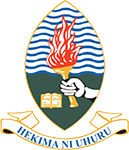The course exposes students to the methodology of oral tradition. It provides an avenue for critical discussions on the nature of oral sources and oral histories, highlighting the strengths as well as challenges historians encounter in collecting and interpreting them. The course has five main objectives, namely to: a) articulate the particularity of oral sources in comparison to other sources of history; b) identify and classify types of oral sources; c) appreciate the significance and challenges of oral sources; d) understand and articulate the general principles and good practices in conducting oral history research and interpreting the findings; and e) gain a detailed knowledge of how historians of Tanzania collected and used oral historical information and interpreted it. It starts with lecture series during the first eight weeks of the semester to expose students to the theoretical part of oral history in African history. The lectures will focus on the nature, advantages, weaknesses, and strategies for collecting oral historical accounts and traditions. This will be followed by seminar discussions on selected readings where students will be required to present on one selected book for the year that applied intensive oral sources.
